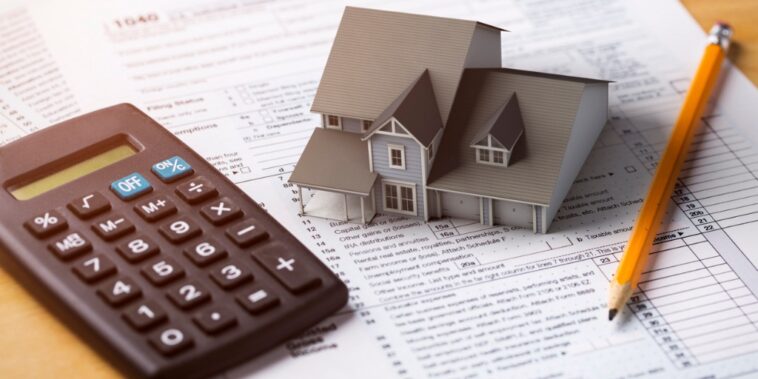Confused Between Lap and Gold Loan for Availing a Large Loan? Check Out This Comparison.

People who need large sums of money are frequently unsure which option to choose because gold loans and loans against property share many similar characteristics, such as the freedom to use loan money, secured nature, and high ticket amount (depending on security value). Especially those who fulfil Loan Against Property Eligibility criterion and are also possessing gold tend to get confused about which loan to take.
To assist you in making your decision below is a comparison between gold loans and loans against property.
Time is taken for Disbursement.
The disbursement time for a loan against gold is among the quickest when compared to other loan kinds. The money is frequently sent to the borrower a few hours after the loan application has been submitted. The quality of the collateral is the primary consideration during the assessment process, with little to no emphasis placed on the borrower’s credit history. In contrast, the Loan Against Property disbursal procedure normally takes two to three weeks, depending on the Loan Against Property Eligibility and property.
This is so that lenders can validate that you own the concerned property and its current market worth before disbursing the loan and to ensure that all of the paperwork pertaining to your property has been verified. As a result, in terms of the time it takes to process the loan, people who need access to the money right away would profit more from gold loans than from loans secured by the property.
Duration of Repayment
With the majority of lenders offering tenures of three months to three years and only a small number of lenders offering terms of up to four or five years, payback terms for loans secured by gold are frequently on the quicker side.
Repayment periods for Loan Against Property can be up to 15 years, although only a small number of creditors provide terms of up to 20 years if you also fulfil other crtieroon of Loan Against Property Eligibility. LAPs frequently offer much longer payback periods than do gold loans, which makes them a potentially excellent option for borrowers who want to keep their EMIs low over the course of a lengthy loan repayment period. A gold loan, on the other hand, may be the more cost-effective option for borrowers who are confident they will be able to make repayment of their loan within a shorter tenure after assessing their capacity to make repayments, given that longer repayment tenures also result in higher loan against property interest rate.
Quantity of Loan amount
When it comes to loans secured by gold, the loan’s size is mostly defined by the gold’s appraisal as collateral as well as the loan-to-value (LTV) ratio that the lender establishes. The RBI caps the LTV ratios for gold loans at 75%. This upper limit could change. Depending on the lender, the loan’s sum could be anything from 1000 and 1.5 crore. In contrast, when it comes to loans secured by real estate, lenders will frequently give up to 50% to 70% of the market value of the property depending on the borrower’s capacity to pay back the loan, their income, the property that will be mortgaged, and other considerations.

When taking out a loan against property, keep in mind that lenders assess a number of factors when determining the property’s fair market value as per Loan Against Property Eligibility, including its location and age, as well as the infrastructure that is located nearby, among other things.
Interest rates applicable
Gold loans are generally similar to a loan against property interest rate.
Interest rates on gold loans can vary from seven per cent per year to twenty-nine per cent per year, depending on the lender’s evaluation of the applicant’s creditworthiness, the length of the loan term, the size of the loan, and the borrower’s preferred method of repayment. Some lenders have a tendency to charge higher interest rates for loans with larger balances and longer repayment terms.
On the other hand, the loan against property interest rate can range from 8 to 9% to 13 to 14% annually, dependent on the lender, how risky your credit profile is to them, and the kind of property they are using as collateral. Mortgage rates for owner-occupied properties are often lower than those for investment or rental properties.
Flexible EMI payment options
Compared to other types of loans, gold loans often have a more flexible loan repayment plan. Many creditors allow borrowers to repay only the interest portion of their loan on a monthly basis, with the full principle amount being due on the loan’s maturity date, in addition to the usual method of repayment known as EMI. However, some lenders allow borrowers the option of even repaying their interest component in totality at the moment the loan is accepted. The principal amount is normally reimbursed at the end of the loan term. Several gold loan options provide borrowers with the opportunity to repay both the principal and the interest portion of the loan when the loan period is through.
Lenders normally allow payments of EMIs at applicable loan against property interest rate to be made in the form of EMIs, but some of them also frequently provide LAP in the form of an overdraft facility. People with short-term cash flow issues and restrictions may find that gold loans are more suitable for their needs due to the availability of several repayment options that are not reliant on EMI.
Processing fees/ charges
Processing fees of up to 2 per cent of the loan amount may be applied on Loan Against Property after factoring in other Loan Against Property Eligibility criteria. A few lenders charge fixed fees for these loans starting at just Rs 10 while processing costs for gold loans normally vary from 1 percent to 2 percent of the taken loan amount. Therefore, while estimating the true cost of acquiring these large ticket loans, loan applicants must be careful to include the processing fees. This is due to the fact that even a small change in the processing fees can have a big impact on how much the loan will ultimately cost.






